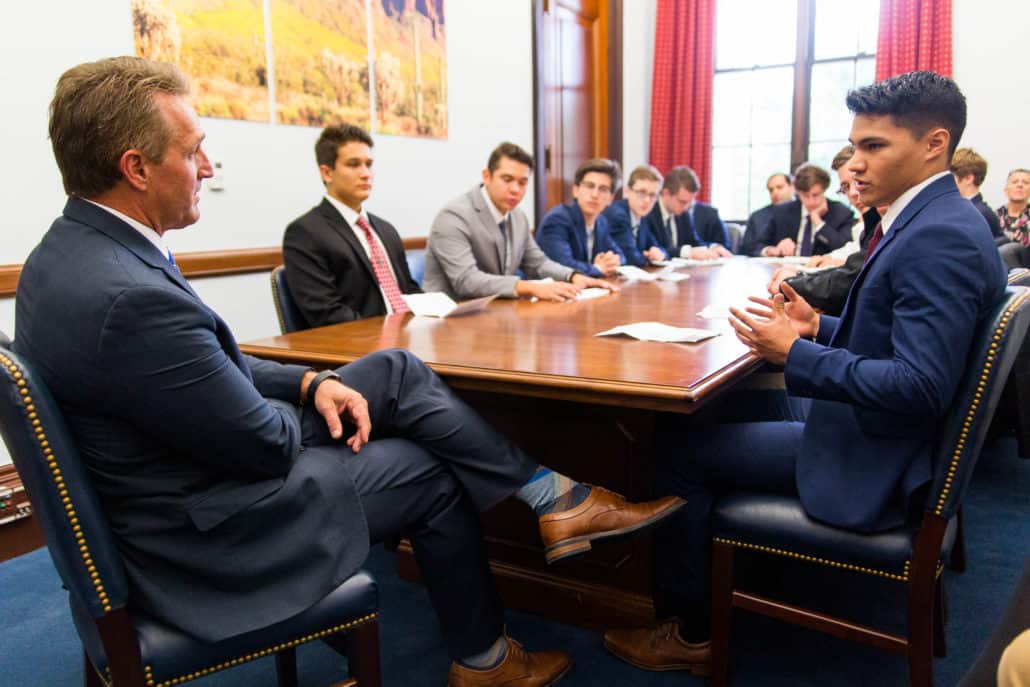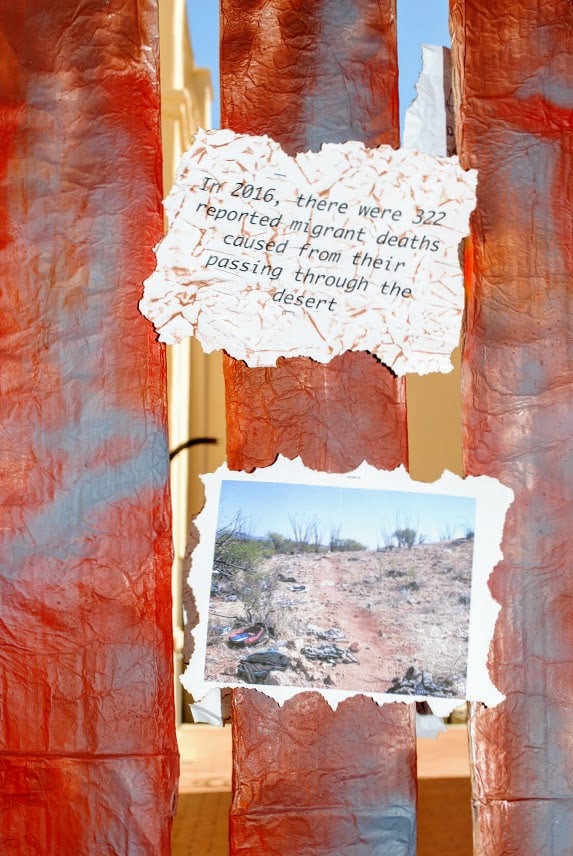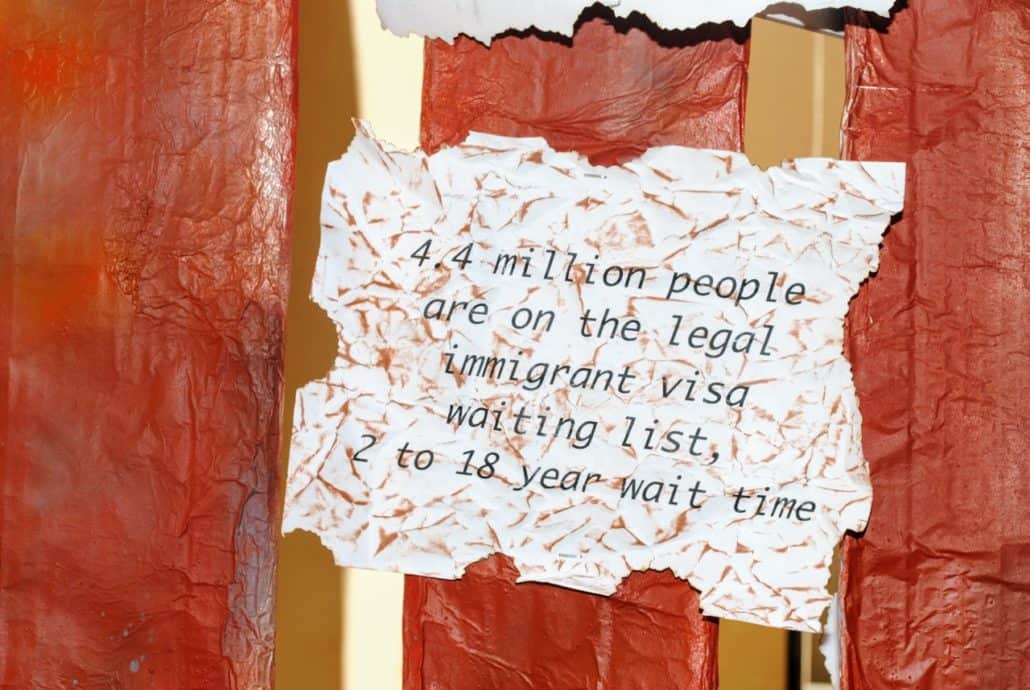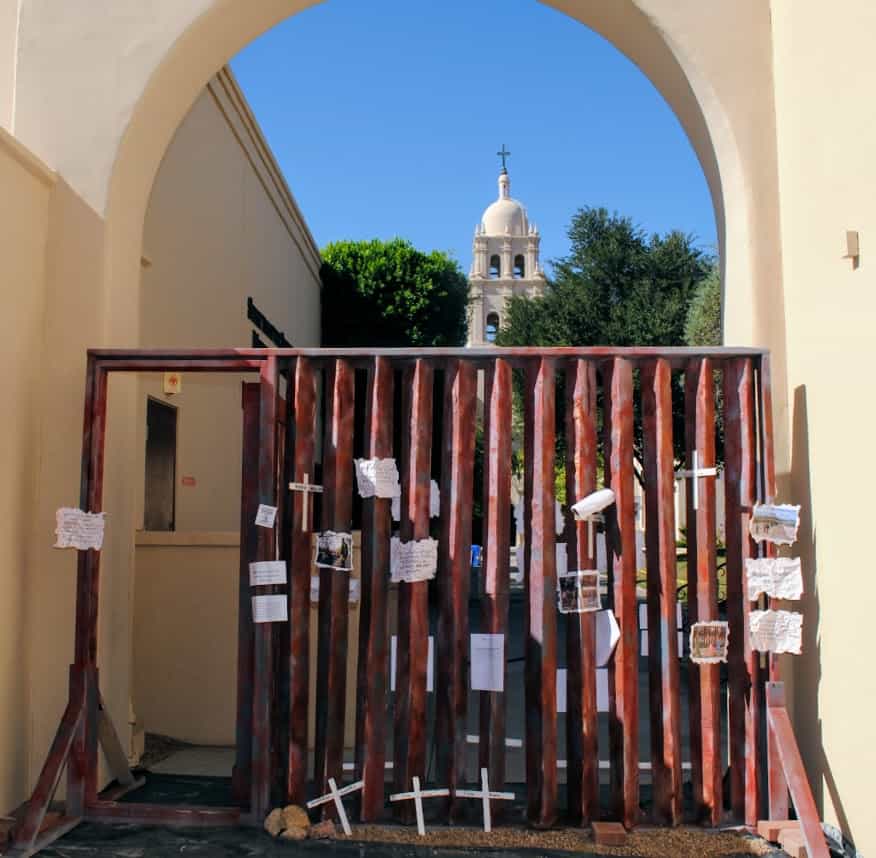BY KELLY SWAN | September 6, 2017
Growing up as a son of immigrants in a segregated, vulnerable community in Milwaukee, Eduardo Perea-Hernandez saw Marquette University as a “Harvard”—picturesque, prestigious, with a nationally-renowned basketball team.
“As a Latino child, you don’t see anyone of your kind at these institutions,” remembers Perea-Hernandez. “But if you do see one or two from your neighborhood attend college at Marquette you think—‘I’m going to do that too.’”
“I grew up in the south side of Milwaukee, the Latino section of town, where drugs, prostitution, and shootings were a norm, education levels are low, and teen pregnancy is high,” shares Perea-Hernandez. “However, the Latino community is very rich in culture and intellect…. There is so much talent inside of every individual in the community, they just need the guidance of a school like Nativity to help them realize their potential.”
He attended Nativity Jesuit Middle School, where, as a sixth grader, he learned Jesuit values, leadership skills, and the powerful idea that he could contribute to his community. “As an 11-year-old,” he shares, “I realized that my Latino community is meant for bigger than this.”
[tweet_box design=”box_07″ float=”none”]I realized that my Latino community is meant for bigger than this.[/tweet_box]
Nativity, a school whose mission is to educate Latino youth for Christian leadership and service, changed the trajectory of Perea-Hernandez’s life, exposing him “to the solution to many problems a young Latino kid from the ‘hood faces.” Rather than an authoritarian school structure, Perea-Hernandez explains that he was given “the educational tools that allowed me to think thoroughly about my decisions to make the good ones, and when I chose wrongly I learned to recover from it. Nativity taught me how to be a leader in my household, community, and city.”
After middle school, Perea-Hernandez entered Marquette University High School, an all-boys school enrolling a very different demographic from Nativity. Many of his classmates were entirely unaware of the realities of immigration. “I became more and more vocal throughout high school,” he remembers. “I wanted to give them facts about why people migrate.”
Eduardo Perea-Hernandez is now a first-generation college attendee, a senior fulfilling his dream of enrolling at Marquette University. Nonetheless, he expresses some frustration with his campus culture. “I thought students would be more socially aware,” he explains. “But it is much like high school,” with few students of color or immigrants, primarily from suburban Jesuit high schools.
However, the university has given him a safe space and support to raise awareness surrounding issues that administrators and non-minority students do not experience—struggles familiar to students of color and undocumented and other immigrant students.
Eva Martinez Powless is director of Intercultural Engagement at Marquette University. Her work is to give voice to students like Perea-Hernandez. Martinez Powless immigrated to the U.S. from Mexico, and through her work is uniquely situated to provide support to the entire campus multicultural community. She is the founder of the school’s undocumented student taskforce and runs a group for Dreamer students at Marquette.
In 2016, a group of students from Youth Empowered to Succeed (YES) program at Marquette were seeking to explore ways to improve the campus experience for undocumented students. Through connections in the immigration advocacy community, Martinez Powless was aware of a gala to benefit Dreamer students in Chicago. She proposed the idea to the student group, who were immediately enthusiastic about the idea.
The first Dreamers’ Gala was held at the University in March of 2016, entirely student-initiated and student-led, benefitting the new Ignacio Ellacuria Dreamers Scholarship. The gala raised $28,000 in just the first year with 180 attendees.
Martinez Powless notes that the gala was able to create a unique alumni affinity group of multicultural alumni who may not have typically donated to the university, as well as significant support in the Milwaukee community.

The Ignacio Ellacuria, S.J., Dreamers Scholarship Gala is a student-led initiative that aims to raise money to create a scholarship for undocumented students who wish to attend Marquette University.
Perea-Hernandez has seen undocumented friends from his home neighborhood in Milwaukee struggle to fund a college education, with the lack of availability of federal grants and loans for undocumented students. As a college freshman, he learned of the gala initiative, which older students had already put in motion, talking to university administrators and gaining campus support.
“We have had a very diverse group working on this.” He explains that student support of the scholarship has extended beyond the Hispanic community, as it is available to undocumented students of any background. “We are working together to make this happen; this is a product of the minority community coming together.”
The group’s goal was to raise $50,000 over the course of a handful of years to fully endow the scholarship for long-term sustainability.

Members of the Ignacio Ellacuria, S.J., Dreamers Scholarship Gala Committee, including Eduardo Perea-Hernandez, bottom right.
During his winter break freshman year, Perea-Hernandez became involved in gala planning, translating promotional materials, creating introductory packets, and reaching out to local, state, and national individuals and groups for support—diving into grassroots mobilization and fundraising with fellow students. He eventually joined the organizing committee in rallying local media attention, recruiting student talent for a gala performance, and engaging student artists from other Milwaukee schools.

Lupe Serna, a sophomore in the College of Education, showcases her artwork as a representation of the obstacles encountered by undocumented students in higher education.
Perea-Hernandez was also uniquely positioned to gain support from the local Hispanic community, being one of the few organizers originally from Milwaukee. His approach pulled from his Jesuit values and social justice vision, and liberation theology. “We’ve learned that we can count on our own community support, our own people,” he explains. “The community rallies around this project to help students in Milwaukee with hopes and dreams of going to Marquette some day.”

Vice President of Student Affairs, Dr. Xavier Cole, shows his support for the Ignacio Ellacuria, S.J., Dreamers Scholarship with other community members.
The second gala was held in March of 2017, drawing more than 220 attendees and raising more than $30,000, allowing for the scholarship to be fully endowed in less than two years. Scholarships are small as the program grows, offering $1,000 and $2,000 annual scholarships, but Martinez Powless anticipates rapid expansion of the program in coming years. Qualifications are simple—applicants must be undocumented, demonstrate financial need, be academically high-achieving with leadership experience, and must submit an essay about how the scholarship would enhance their life.
[tweet_box design=”box_07″ float=”none”]This program sends a message of hope—as a #Jesuit university we support #undocumented students.[/tweet_box]
She is excited about the growing involvement of the Milwaukee community in gala and fundraising efforts, including business owners, immigration lawyers, and others. “This program sends a message of hope to undocumented students—that as a Jesuit university we support undocumented students.”

Eva Martinez Powless and Eduardo Perea-Hernandez at the 2017 gala.
In addition to Marquette administrators’ support of the scholarship, efforts of Martinez Powless’ programs and work from students on campus also led to a statement in support of undocumented students from Provost Dr. Daniel J. Myers and Dr. Xavier Cole, Vice President for Student Affairs.
Perea-Hernandez is equally optimistic. “Right now, it seems like we’re going in the right direction,” he shares. “We will continue to hold our campus and administrators accountable to Jesuit values. Equally, undocumented students have to continue to have space to tell their stories to get things done. Exposing yourself is scary, but it makes an impact—sharing these stories makes everything more relevant, more human.”
Editor’s Note: This piece was originally published as part of the Ignatian Solidarity Network Voices for Justice blog series.
Kelly Swan has worked for the Ignatian Solidarity Network since 2016, first as communications director, and now as director of advancement. She grew up in West Virginia and is a graduate of Wheeling Jesuit University. Kelly has worked in parish social ministry, child and family advocacy, community education and organizing, and publishing. She lives in the Cleveland, Ohio area with her children.













